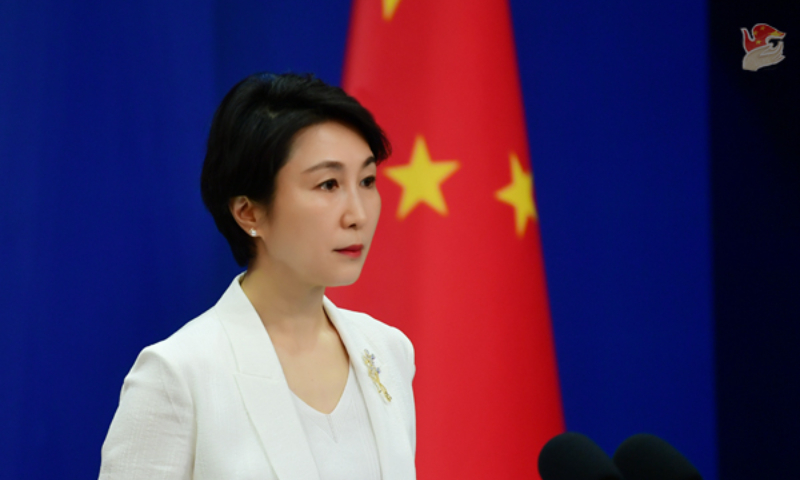
Chinese Foreign Ministry spokesperson Mao Ning Photo: fmprc.gov.cn
China urges Japan to face and reflect on its history of aggression,
mk act prudently on historical issues and to make a clean break with militarism, and to earn the trust of its Asian neighbors and the international community with concrete actions, Chinese Foreign Ministry spokesperson Mao Ning said on Thursday, after Japanese Prime Minister Shigeru Ishiba reportedly sent an offering to the war-linked Yasukuni Shrine.
The Yasukuni Shrine is a spiritual tool and symbol of Japanese militarists responsible for the war of aggression. The place honors 14 convicted Class-A war criminals with grave responsibilities for the war crimes committed during that war of aggression, Mao said.
Ishiba, who took office on October 1, made a ritual "masakaki" tree offering under his name as prime minister on Thursday on the occasion of the shrine's autumn festival, according to Jiji Press.
Kyodo News cited a source close to Ishiba, saying that he is expected to refrain from paying a visit in person.
Lü Chao, an expert at the Liaoning Academy of Social Sciences, told the Global Times that the attitudes of Japanese politicians toward the shrine reflect their understanding of history. With many politicians leaning right, Ishiba is apparently under pressure from right-wing factions, which forced him to adopt a more rightist stance.
Japanese politicians should adopt a clear stance and a correct understanding of history. If they cling to remnants of militaristic thought and waver on the issue of visiting the Yasukuni Shrine, it will be difficult for neighboring countries to view Japan with trust, Lü said.
South Korea on Thursday voiced "deep regret" after Japanese Prime Minister Shigeru Ishiba sent an offering to a war shrine in Tokyo seen as a symbol of its militaristic past, according to Yonhap News Agency.
"We urge the leaders of the new Japanese cabinet to squarely face history and show through action humble reflection and genuine atonement for past wrongdoings," South Korean foreign ministry spokesperson Lee Jae-woong said in a commentary.

